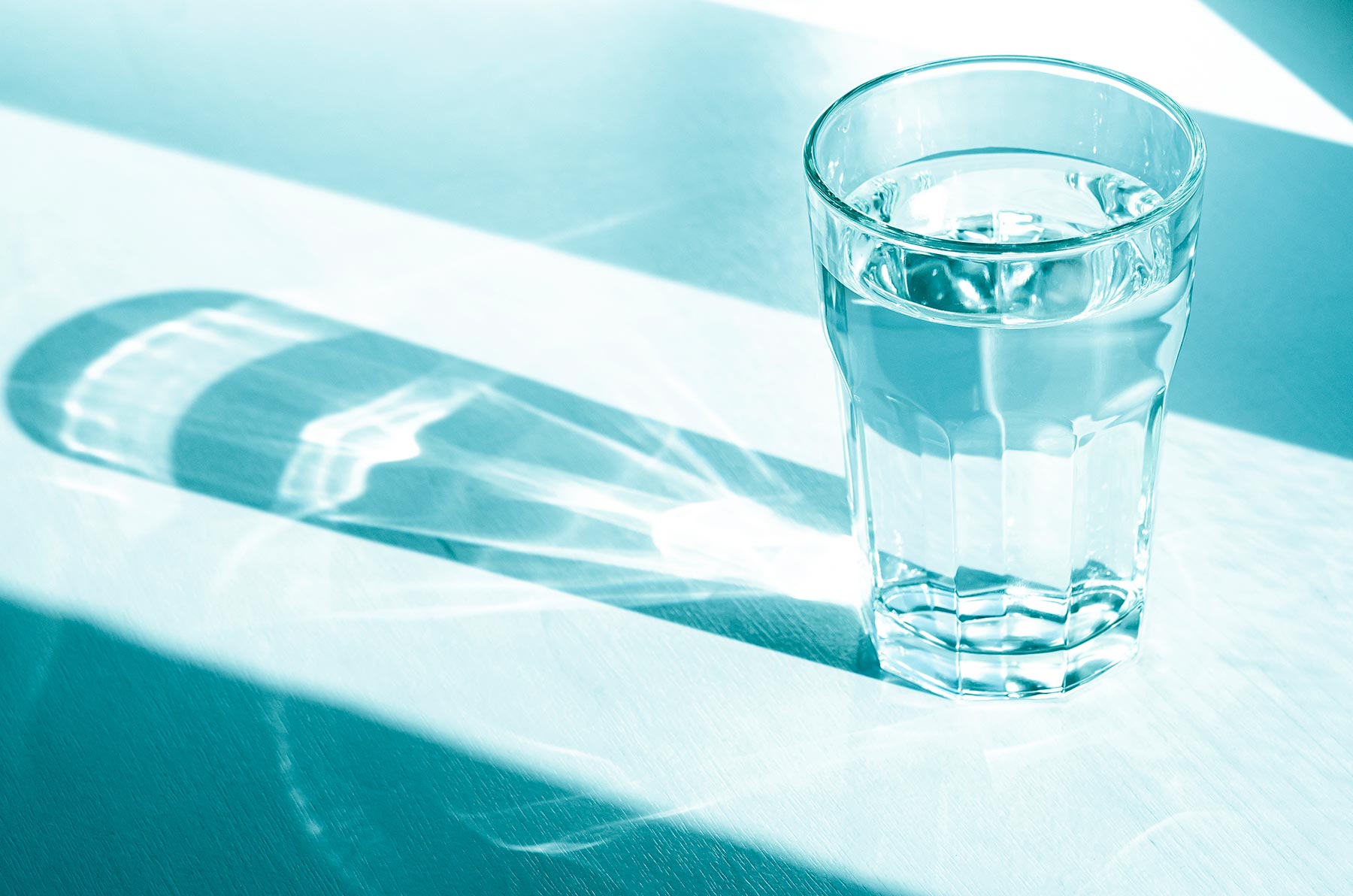Water: The Elixir of Life

Like death and taxes, two things hold true about South Florida summers: Temperatures hover around insufferable and it’s not unusual to get dehydrated in the heat. Our seasonal motto: drink more water.
“Drinking fluids is essential to good health,” says Olveen Carrasquillo, M.D., MPH, an internal medicine doctor with the University of Miami Health System. “And it’s especially important to keep adequately hydrated in the hot summer months when we’re sweating and outside so much.”
Why is it important to hydrate?
For one, we’re made mostly of water. It’s in our blood, our bones, our tissues and pretty much everywhere else in our bodies. In fact, an adult man is composed, on average, of 69 percent water. The average adult woman: 42 percent.
Water is essential to every bodily function. It serves as a solvent for the transportation of nutrients, helps excrete waste, lubricates joints and aids in heat control. “It’s critical to life,” Carrasquillo adds. “It regulates so many of our body’s functions. In essence it keeps our cells going.”
What’s more, research by Dr. Thomas M. Hooton, clinical director of UHealth’s division of infectious diseases, found that women prone to urinary tract infections can cut their risk in half by drinking an additional three pints of water each day. Drinking more fluids increases the flushing of bacteria from the bladder.
What are dehydration symptoms?
But when we lose more water than we drink, our body finds it hard to perform these essential tasks. The initial signs of dehydration are dizziness, irritability, nausea and headache. Some people suffer from muscle cramps, too. In extreme cases, dehydration can be fatal.
“Many people don’t know it’s even happening, and they don’t know why they’re feeling the way they are,” Carrasquillo says.
He suggests an easy spot test: Check your urine. If it’s dark yellow or cloudy, or if you’re not urinating as frequently as you usually do, chances are you need to drink more fluids. (Clear yellow urine is a sign of good hydration.)
How much water should you drink?
We stay hydrated by drinking and eating. Lots of foods contain a high percentage of water, so we can actually eat our fluids. At about 96 percent water, cucumbers are the solid food with the highest fluid content. But tomatoes, green peppers, watermelon, iceberg lettuce, spinach and strawberries also score high on water content.
Usually we drink most of the fluids we need. Dr. Carrasquillo, however, doesn’t believe in the much-bandied rule that urges us to down eight glasses of water.
There’s no magic number [of glasses of water]. It depends on what you’re doing and where you are.
Dr. Carrasquillo
It’s more important, he adds, to make hydration an everyday habit by drinking plenty of fluids during and between meals and upping your intake when exercising or spending any significant amount of time outside in the heat. On occasion he sees patients who “forget” to drink fluids because they’re too busy working, whether it’s in the office or a construction site.
“At the very minimum in an eight-hour workday, you need to drink two glasses of water [in an office setting],” he says.
Thirst, he adds, is your body’s signal that it needs fluids, but you shouldn’t wait for a dry-as- the- Sahara-desert mouth to drink up. By then it’s likely you are mildly dehydrated. For seniors and young children, the thirst signaling mechanism may not be as efficient either, so it’s essential that drinking water becomes a habit they practice throughout the day.
Tips to stay hydrated
Dr. Carrasquillo has other suggestions to keep your body functioning like a well-hydrated machine:
- Don’t drink all your water at once. Sip throughout the day to balance intake.
- Plain old water is the perfect hydration for normal activity. If you’re participating in strenuous exercise, such as a marathon, downing a Gatorade, Powerade or other sport drink will help replenish your body’s electrolytes. Otherwise don’t waste your money.
- Down a glass of water before a meal. You’ll eat less.
- You can count coffee and sodas as part of your fluid intake, but be forewarned: These drinks act as diuretics. Besides, sodas are unhealthy.
- Work extra hard to stay hydrated if you’re sick. It’s estimated that the average person suffering from a stomach flu with diarrhea and vomiting can lose a gallon of water a day.
- Medical conditions — kidney disease, for example — as well as some medications can lead to dehydration. Laxatives, diuretics, chemotherapy and drugs for certain heart conditions can cause you to lose more fluid.
- Pregnant or breastfeeding women need to drink more to replace the fluids they lose.
Finally, think of water as the elixir of life. Before you reach out for a glass of wine or a cup of joe or even a second helping, try drinking water instead. “It helps satisfy,” Dr. Carrasquillo says, “by giving you a sense of fullness.”

Guest Contributor
Ana is a regular contributor to the University of Miami Health System. She is a renowned journalist and author, who has worked at The Miami Herald, The Miami News and The Palm Beach Post. Visit her website at anavecianasuarez.com or follow @AnaVeciana on Twitter.
Tags: Dr. Olveen Carrasquillo, Dr. Thomas M. Hooten, drinking water, fluids, hydration
